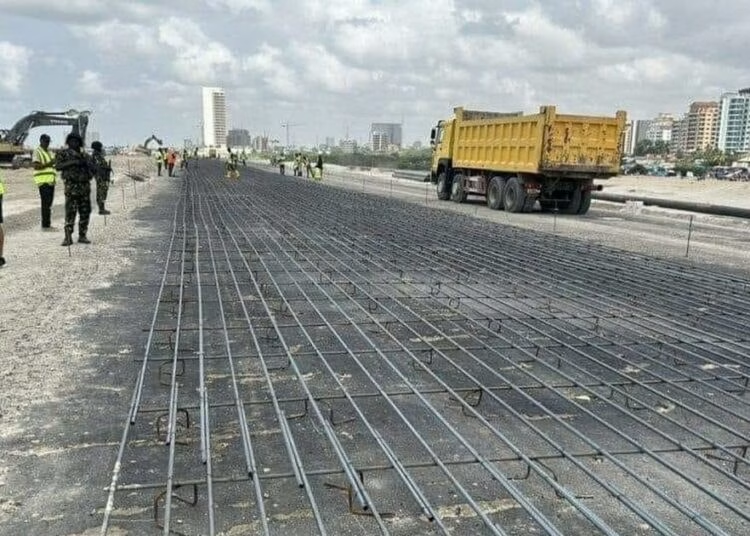Updated September 11, 2025- The Lagos-Calabar Coastal Highway is a major infrastructure project in Nigeria. The road will cover 700 kilometers and connect the country’s western and southeastern regions. The highway will pass through nine coastal states, aiming to enhance trade, tourism, and overall economic development.
The Nigerian Federal Government secured a $747 million syndicated loan to that will be used to fund the Phase 1 Section 1 of the Lagos-Calabar Coastal Highway Project. This highway is a major infrastructure project under the Renewed Hope Agenda.
The loan was announced in a press statement by the Ministry of Finance. It is aimed at completing the construction works of the first section of the highway. The highway section spans 47 kilometres from Victoria Island to Eleko Village in Lagos State.
Also read: 750-Kilometer Lagos-Calabar Coastal Highway Foreign Funding Secured
Lagos-Calabar Highway Project Factsheet
Name: Lagos-Calabar Coastal Highway
Length: Approximately 700 kilometers
Contractor: Hitech Construction Company Ltd.
Estimated cost: Between $11 billion and $12.5 billion
Construction start: Began in March 2024
Construction type: Continuously Reinforced Concrete Pavement (CRCP), designed for a minimum lifespan of 50 years with minimal maintenance.
Also read: ECOWAS Bank Approves $100 Million for Lagos-Calabar Coastal Highway Project
Current Status on the Project
According to the statement by the Director of Information and Public Relations at the Ministry of Finance, Mohammad Manga, this highway section is already more than 70% completed. Furthermore, it is expected to play a big role in unlocking trade and improving connectivity. Also, it will boost logistics across the region.
The deal on the loan was led by Deutsche Bank. The institution acted as the Global Coordinator and Lead Arranger, alongside a consortium of international and regional lenders.
Construction Technology to be Used on Lagos-Calabar Coastal Highway Project
The Lagos-Calabar Coastal Highway will be constructed using Continuously Reinforced Concrete Pavement (CRCP). Thus is construction that is technology known for its durability and cost-effectiveness. Additionally, according to the Ministry of Finance, this technique ensures the road will last for up to at least 50 years with minimal maintenance. This will therefore make it a long-term asset for national development.
Lastly, the Federal Government has unveiled plans of connecting the highway to the Sokoto-Badagry Highway with a tunnel. This tunnel will be of significance as it will stand as Africa’s first underwater tunnel positioning Nigeria as a leading transport infrastructure hub in Africa.
Also read: 700Km Lagos-Calabar Coastal Highway Construction Commences

Leave a Reply